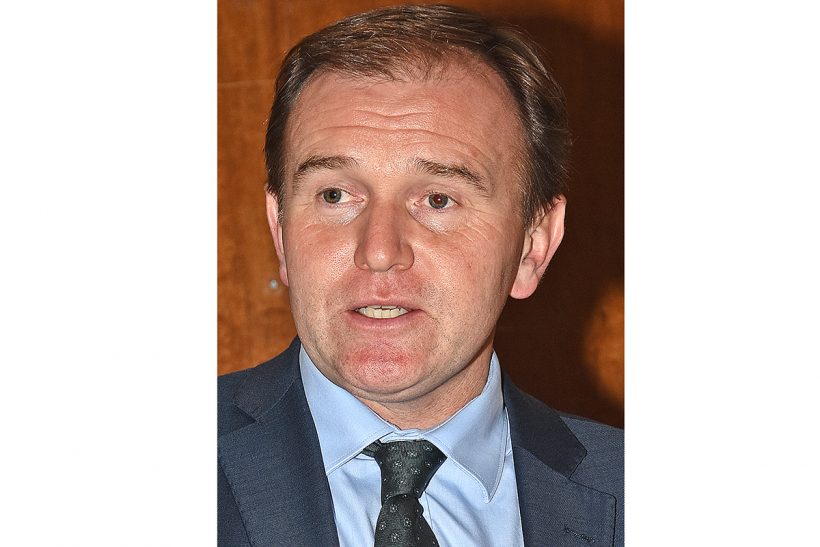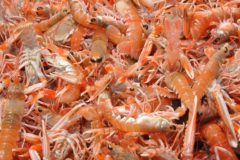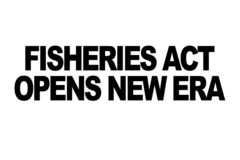Industry warns Eustice red tape will strangle exports
‘Final straw’ for many struggling businesses
Fifteen fishing industry organisations, from catchers through to merchants, fish auctions and hauliers, have warned that excessive bureaucracy will bring serious delays to vital fish and seafood exports to the EU from 1 January and threaten the viability of many businesses, reports Tim Oliver.
They tell DEFRA secretary of state George Eustice that the MMO’s proposals would have ‘a seriously detrimental effect on fish exports from the UK and on the future viability of large segments of the catching sector, auction houses, merchants and processors’.
Image: George Eustice
They warn: “It could be the final straw for many businesses which are still facing extremely tough times because of the pandemic. This affects all sectors and just about all types and sizes of vessel.”
The export problems spelled out will apply regardless of whether there is a Brexit trade deal or not.
In a joint letter to George Eustice, the organisations stress the high perishability of fish and seafood and the need for speedy transport and delivery to buyers.
They say the current systems for monitoring the fish/shellfish caught, landed and sold have worked and taken account of the need for speed.
From 1 January next year, all fish exports will need to be accompanied by a catch certificate, but the MMO now says that before a catch certificate can be issued, logbooks, landing declarations, Catch App returns and sales notes must be with the MMO.
Furthermore, logbooks, landing declarations and catch records must be accurate and submitted by the deadline set in the EU regulations, and the data on landing declarations and sales notes must match. This ‘fails to take into account regulatory, logistical and commercial realities’, says the letter.
“To insist that all documentation is submitted to the MMO prior to a catch certificate being issued will in effect exclude any export within the first 48 hours of that fish/shellfish being landed, with all the loss of value and quality that this brings,” the minister is told.
The letter also points out that the MMO cannot explain how it will reconcile two or three different sets of weights for the same fish (including estimates and where only a proportion of the catch is exported) and be able to validate the catch certificate. “Local MMO staff seem to be as perplexed about this as we are.”
The industry says it will be impossible to meet both the MMO’s timing expectations and its requirement for accurate and consistent data before a catch certificate can be produced.
“The MMO’s requirements give rise to major handling difficulties, including an unresolved problem in recording the landing date on sales notes for many small vessels, which could mean that their fish could not be sold through established outlets.”
The organisations tell George Eustice they have raised the problems with officials on a number of occasions without any resolution.
They point out that government is urging businesses to prepare for 1 January, 2021, and warning that ‘change is coming whether an agreement is reached or not’.
But, they say, there are still vital processes and details missing to allow businesses to be ready for Brexit that only government can put in place. “We cannot be Brexit-ready without these being complete and tested well in advance of 1 January, 2021.”
“Ironically, the government has identified and acknowledged that perishable seafood products should be given systems priority for exports over other goods, whilst at the same time we are presented with MMO demands that do the very opposite, by effectively delaying exports,” the letter tells George Eustice.
The groups have offered to meet the minister to discuss the issues.
Threat of 48-hour delays to move fish
The letter is signed by the three South West auction markets at Plymouth, Brixham and Newlyn, the South Western FPO, and fish salesmen, merchants, processors and haulage companies throughout the South West and the Channel and east coasts.
South Western FPO chief executive Jim Portus said that the documentation that will be required for exports after Brexit was ‘throwing up all sorts of bureaucracy’, and that there was not enough clarity from the MMO or DEFRA.
“The MMO is insisting on catch certificates, but the catch certificates will not be issued by the MMO until the landing declaration and sales notes have all been completed,” he told Fishing News.
He said the existing system had always worked well, and it was ‘common sense’ that highly perishable products needed to be exported with the minimum of bureaucracy – but the new documentation meant it could be 48 hours before a consignment could start to move.
“It’s a potentially serious delay, and we’re having to point this out to people who should already know it. That’s the frustrating thing – it’s been pointed out time and time again that this is a logjam that needs to be freed up, and it could be freed up.
“It’s not as if we’ve never had documentation to go with fish before. We had adequate documentation in the past, and it should be adequate for the future.”
Jim Portus pointed out that vessels also need hygiene certificates, but there are still quite a few vessels that have not got them, particularly smaller vessels.
“It’s not the industry’s fault – the environmental health officers haven’t got the resources to devote to getting it done efficiently. They’re basically saying the small boats are at the bottom of the list.
“When a skipper puts his fish on the market, he doesn’t know who’s buying it, or whether it’s for export or not. It could be a buyer topping up a consignment, so if it’s not 100% certificated, that leads to the whole consignment being held up.”
Another key concern was that the bureaucracy UK fishermen had to face was not required for EU vessels landing fish and seafood into the UK for export.
The MMO has been holding webinars on preparing for Brexit and these issues have been raised there, but ‘time is running out’, said Jim Portus.
DEFRA: ‘Fish export service being set up’
Responding to the industry’s concerns, DEFRA said the department was working hard to ensure the fishing industry is well prepared for the end of the transition period.
This will include establishing a fish export service, which will issue validated catch certificates free of charge to support the UK industry in exporting to the EU after the end of the transition period, and round-the-clock technical support.
“We encourage all exporters to register and test the system to ensure a smooth transition come 1 January, 2021,” said a DEFRA spokesperson.
The system has undergone internal testing, and will move into a public testing phase shortly.
“The government understands the complexities of the fishing industry and is supporting industry to enable the smooth transition,” said DEFRA.
It says that data compliance is needed to ensure fishers can meet export regulations after the transition period.
“While DEFRA supports a pragmatic approach to give businesses time to prepare, we do not know the approach the EU and the member states (EUMS) may take. We therefore want to ensure that UK businesses are prepared on 1 January so that EUMS will accept our products at the border without delays,” said the department.
“The MMO has increased resource to allow for the expected volumes of IUU [illegal, unreported and unregulated] documentary requirements, and for the overall management of the UK fishing fleet.”
The government is investing £705m in jobs, infrastructure and technology at the border, and there is an £84m support package to boost the capacity of the customs intermediary sector. DEFRA is also working closely with port health authorities to ensure they are prepared, including understanding staff requirements, and providing funding.
DEFRA confirmed that George Eustice had seen the industry letter and would respond ‘in due course’.






